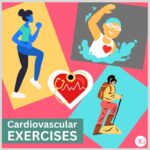800-Calorie Diet: VLCD For Weight Loss, Diabetes, And High BP

Obesity, type 2 diabetes, and high blood pressure are health issues that affect millions (1), (2), (3), (4). Thankfully, an 800-calorie diet can aid weight loss, reverse type 2 diabetes, and lower high blood pressure (5), (6). Follow an 800-calorie diet plan for three days a week for a month to keep multiple health problems away. Here’s what to eat on an 800 calories diet, benefits, and safety. Read on!
Note: The 800-calorie diet is a very low-calorie diet (VLCD) and should be supervised by a registered dietitian.
Table Of Contents
- 800-Calorie Diet – What Is It?
- 3-Day 800-Calorie Diet Benefits
- 800-Calorie Diet Plan – What It Looks Like
- 800-Calorie Diet Workout Plan
- How Will You Feel After 1 Month?
- Is The 800-Calorie Diet Safe?
- 800-Calorie Diet Precautions And Safety
800-Calorie Diet – What Is It?
The 800-calorie diet is a very low-calorie diet that allows consuming a total of 800 calories per day. A supervised 800-calorie diet helps reduce weight, reverses type 2 diabetes, and lowers high blood pressure.
It is also a part of the Blood Sugar Diet, popularized by Dr. Michael Mosley. In the blood sugar diet, dieters first go on an 800-calorie diet for eight weeks. Then, the dieters follow a 5:2 diet pattern, consuming 800 calories for two days and 1500 calories for five days.
In this post, we discuss 800 calories for three days a week for a month. It will give you the following benefits.
3-Day 800-Calorie Diet Benefits
- Aids weight loss – Kick-starts metabolism and fat mobilization and reduces the risk of metabolic syndrome in people with obesity (7), (8), (9).
- Reduces the risk of diseases – Weight loss helps reset normal biological functions and hormone actions. A supervised 800-calorie diet helps reduce the risk of type 2 diabetes, hypertension, heart problems, digestive issues, and infertility (9).
- Improves energy levels – Going on a low-calorie diet for a few days, avoiding unhealthy food, and leading a healthy lifestyle will improve your energy levels and make you proactive.
- Reduces inflammation – Healthy, calorie-restricted eating for a few days a week helps reduce inflammation (10). This, in turn, reduces the chances of inflammation-induced obesity.
- Reduces sleep apnea – Going on a very low-calorie diet helps reduce weight. This, in turn, reduces sleep apnea (11).
Follow this sample 3-day 800-calorie meal plan to reap all the benefits mentioned above.
800-Calorie Diet Plan – What It Looks Like
Day 1
| WHAT TO EAT | MEALS |
|---|---|
| Early Morning (7:30 – 8:00 a.m.) | 2 teaspoons fenugreek seeds soaked in a cup of water |
| Breakfast (8:45 – 9:15 a.m.) | Options ● Oatmeal with ½ apple, blueberries, and 4 almonds ● 2 boiled egg whites + 1 cup milk + ½ cup papaya |
| Lunch (12:00 – 12:30 p.m.) | Options ● 1 cup chicken clear soup ● 1 cup sauteed veggies |
| Evening Snack (4:00 p.m.) | 1 cup green tea |
| Dinner (7:00 p.m.) | Options ● 3 oz baked salmon and 1 cup blacked or boiled veggies ● 1 cup baked black beans and sauteed veggies |
Why This Works
Fenugreek seed water is great for increasing insulin sensitivity and reducing the risk of type 2 diabetes (12). It is also very effective for weight loss. Have a substantial breakfast that contains dietary fiber, protein, and complex carbs. Keep the lunch as light as possible and nutritious. Green tea has no calories and is a good source of antioxidants that will help flush out toxins from the body. Have a delicious dinner that is nutritious but low in calories.
Day 2
| MEALS | WHAT TO EAT |
|---|---|
| Early Morning (7:30 – 8:00 a.m.) | 2 teaspoons fenugreek seeds soaked in a cup of water |
| Breakfast (8:45 – 9:15 a.m.) | Options ● Kale and pomegranate smoothie + 2 almonds ● 1 cup vegetable quinoa |
| Lunch (12:00 – 12:30 p.m.) | Options ● 2 lettuce wraps with cucumber, tomato, and tofu ● Tuna salad with olive oil and lime juice dressing |
| Evening Snack (4:00 p.m.) | Green tea or grapefruit juice |
| Dinner (7:00 p.m.) | Options ● 1 baked bell pepper stuffed with chickpea ● 3 oz grilled chicken breast with 1 cup baked veggies |
Why This Works
Continue drinking fenugreek soaked water to sensitize your cells to insulin. Kale, pomegranate, and quinoa are loaded with vitamins, minerals, and dietary fiber. Therefore, you will not feel hungry for at least 2 hours. Almonds are great sources of healthy fats that reduce inflammation and maintain cellular health. A light yet nutritious lunch will keep you active as you will not feel weighed down. Green tea and grapefruit have weight loss-aiding properties (13), (14). Have a tasty and filling dinner that contains a good amount of protein.
Day 3
| MEALS | WHAT TO EAT |
|---|---|
| Early Morning (7:30 – 8:00 a.m.) | 1 cup warm water with lime juice and honey |
| Breakfast (8:45 – 9:15 a.m.) | Options ● 1 boiled egg + 1 cup fat-free milk + ½ apple ● Apple, almond milk, and chia seed smoothie |
| Lunch (12:00 – 12:30 p.m.) | Options ● 1 cup mushroom clear soup ● 2 oz smoked ground turkey with blanched spinach and fresh tomatoes |
| Evening Snack (4:00 p.m.) | Green tea |
| Dinner (7:00 p.m.) | Options ● 1 cup squash soup ● Asian style sautéed chicken and veggies |
Why This Works
Lime is rich in vitamin C, and honey is loaded with antibacterial properties. Have a substantial breakfast before heading out. Explore healthy and nutritious lunch and dinner options on the third day. It will help you cut down on calories and keep your hunger pangs at bay. Green tea should be your go-to drink on this day.
Tip: Stay hydrated all the three days. Drink water, green tea, or coconut water if you feel hungry.
Continue being on this 3-day 800 calorie diet for a month. On the non-diet days, you must get your body moving to expend the calories. Here’s an exercise plan you may follow.
800-Calorie Diet Workout Plan
You must stay active on the days you are NOT on the 800-calorie diet. It will also prevent you from stopping losing weight. Here’s what you may do.
- Neck rotations – 1 set of 10 reps
- Shoulder rotations – 1 set of 10 reps
- Arm circles – 1 set of 10 reps
- Wrist rotations – 1 set of 10 reps
- Waist rotations – 1 set of 10 reps
- Ankle rotation – 1 set of 10 reps
- Spot jogging – 3-7 minutes
- Mountain climbers – 1 set of 10 reps
- Jumping jacks – 1 set of 10 reps
- Scissor kicks – 1 set of 10 reps
- Horizontal out kicks – 1 set of 10 reps
- Squats – 1 set of 10 reps
- Jump squats – 1 set of 10 reps
- Burpees – 1 set of 10 reps
- Crunches – 1 set of 10 reps
- Jumping forward lunges – 1 set of 10 reps
- Pushups – 1 set of 10 reps
- Plank – 2 sets of 20 seconds hold
- Yoga for weight loss
- Meditation
How will you feel at the end of one month? Let’s find out below:
How Will You Feel After 1 Month?
After being on a 3-day a week 800-calorie diet for a month, you will lose weight, look slimmer, your metabolism will be faster, you will feel more energetic and positive, and your stress levels will reduce.
Your new lifestyle will make you fall in love with healthier habits, and you will enjoy being in a better place health-wise. You will be proud of yourself for taking the step ahead and successfully completing one month of the 800-calorie diet. But before you start being on the 800 calorie diet, you must know about its safety.
Is The 800-Calorie Diet Safe?
Yes, a very low-calorie diet is safe (15). But there is the possibility of going wrong if you misuse or abuse it.
Women require 2000 calories per day to maintain their weight and physiological functions. To lose weight, women need to consume only about 1500 (or less) calories per day (16). But if you are overweight or obese, which may give rise to life-threatening and debilitating diseases, going on a supervised VLCD is a smart choice.
What if you do not have obesity, diabetes, and/or hypertension and want to use this diet to lose a bit of flab? You must know that the 800-calorie diet is NOT for people who want to lose a bit of flab. You can go for intermittent fasting or a 1200-calorie diet plan instead!
Here’s a list of precautions that you should take if you go on the 800-calorie diet to lose weight or improve your health.
800-Calorie Diet Precautions And Safety
- Talk to your doctor or dietitian before starting this diet plan.
- A sudden change in the diet affects the body in more ways than one. Do not force it on the body, as poor calorie intake may result in fatigue and diarrhea. Give your body some time to adjust to the diet.
- Do not overdo it. It may be important and healthy to lose a few pounds, but take breaks between weeks. Following VLCDs continuously may result in long-term problems in the kidney, liver, and heart functions.
- You may feel nauseous and weak. Inform your doctor immediately.
- Do not follow this diet if you have hypoglycemia.
- Do not follow this diet if you are pregnant or lactating.
Conclusion
An 800-calorie diet is good for weight loss and reversing or protecting from lifestyle-related diseases. It has to be approved and supervised by doctors or a registered dietitian to prevent possible side effects. Talk to your doctor today and be on the 800-calorie diet to improve your health and life.
Expert’s Answers for Readers Questions
Q. How long should you be on this diet?
A. Be on this 3-day per week 800-calorie diet for a month. You may continue being on it for 2 months.
Q. Can I lose weight eating 800 calories a day?
A. Yes, you can lose weight eating 800 calories thrice a week. Do not follow this every day as it will lead to weakness and compromised immunity. If you have a special occasion to attend, you may try intermittent fasting.
Q. How much weight will I lose on the 800 calorie diet?
A. You will lose up to 10 pounds (4.5 kgs) if you consume 800 calories and exercise regularly. Make sure your doctor or nutritionist is aware of your diet pattern.
References
“World Obesity Day.” World Health Organization.
http://www.who.int/news-room/events/detail/2020/03/04/default-calendar/world-obesity-day
“Obesity and Overweight.” World Health Organization.
http://www.who.int/news-room/fact-sheets/detail/obesity-and-overweight
“Diabetes facts & figures” International Diabetes Federation.
http://www.idf.org/aboutdiabetes/what-is-diabetes/facts-figures.html
“Hypertension.” World Health Organization.
http://www.who.int/news-room/fact-sheets/detail/hypertension
Li, Z et al. “Clinical efficacy of a medically supervised outpatient high-protein, low-calorie diet program is equivalent in prediabetic, diabetic and normoglycemic obese patients.” Nutrition & diabetes vol. 4,2 e105.
https://www.ncbi.nlm.nih.gov/pmc/articles/PMC3940825/
Nakano, Y et al. “Calorie restriction reduced blood pressure in obesity hypertensives by improvement of autonomic nerve activity and insulin sensitivity.” Journal of cardiovascular pharmacology vol. 38 Suppl 1 (2001): S69-74.
https://pubmed.ncbi.nlm.nih.gov/11811363/
Tančić-Gajić, M et al. “Effects of alternate fasting or very low calorie diet and low calorie diet on metabolic syndrome in severely obese patients.” Hippokratia vol. 16,4 (2012): 335-41.
https://www.ncbi.nlm.nih.gov/pmc/articles/PMC3738608/
National Clinical Guideline Centre (UK). Obesity: Identification, Assessment and Management of Overweight and Obesity in Children, Young People and Adults: Partial Update of CG43. London: National Institute for Health and Care Excellence (UK); 2014 Nov. (NICE Clinical Guidelines, No. 189.) 6, Very-low-calorie diets.
https://www.ncbi.nlm.nih.gov/books/NBK311324/
Ruban, Aruchuna et al. “Current treatments for obesity.” Clinical medicine (London, England) vol. 19,3 (2019): 205-212.
https://www.ncbi.nlm.nih.gov/pmc/articles/PMC6542229/
Ott, Beate et al. “Effect of caloric restriction on gut permeability, inflammation markers, and fecal microbiota in obese women.” Scientific reports vol. 7,1 11955.
https://www.ncbi.nlm.nih.gov/pmc/articles/PMC5607294/
Kansanen, M et al. “The effect of a very low-calorie diet-induced weight loss on the severity of obstructive sleep apnoea and autonomic nervous function in obese patients with obstructive sleep apnoea syndrome.” Clinical physiology (Oxford, England) vol. 18,4 (1998): 377-85.
https://pubmed.ncbi.nlm.nih.gov/9715765/
Gaddam, Arpana et al. “Role of Fenugreek in the prevention of type 2 diabetes mellitus in prediabetes.” Journal of diabetes and metabolic disorders vol. 14 74.
https://www.ncbi.nlm.nih.gov/pmc/articles/PMC4591578/
Silver, Heidi J et al. “Effects of grapefruit, grapefruit juice and water preloads on energy balance, weight loss, body composition, and cardiometabolic risk in free-living obese adults.” Nutrition & metabolism vol. 8,1 8.
https://pubmed.ncbi.nlm.nih.gov/21288350/
Huang, J et al. “The anti-obesity effects of green tea in human intervention and basic molecular studies.” European journal of clinical nutrition vol. 68,10 (2014): 1075-87.
https://pubmed.ncbi.nlm.nih.gov/25074392/
Rössner, S, and J S Torgerson. “VLCD säker och enkel behandling av fetma” [VLCD a safe and simple treatment of obesity]. Lakartidningen vol. 97,36 (2000): 3876-9.
https://pubmed.ncbi.nlm.nih.gov/11036337/

















